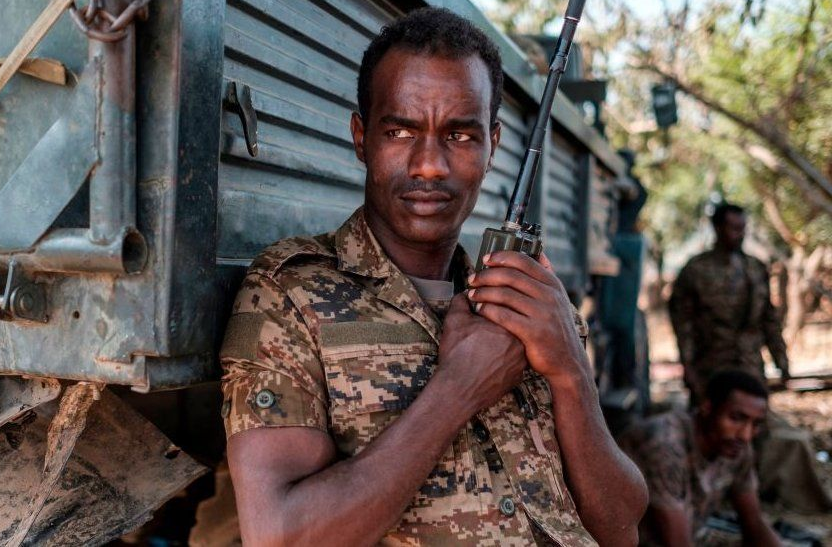
Ethiopia's Tigray conflict: Biden urges ceasefire and end to abuses
US President Joe Biden has called for a ceasefire in Ethiopia's conflict in the northern region of Tigray.
Mr Biden demanded an end to "large-scale human rights abuses". The fighting, now in its seventh month, has killed thousands and forced two million from their homes.
Advertisement
The US president also highlighted the possibility of famine.
The conflict pits the Ethiopian army and its Eritrean allies against a regional Tigrayan force.
It began last November, when Prime Minister Abiy Ahmed ordered an attack on forces loyal to the region's former ruling party, the Tigray People's Liberation Front (TPLF), after they had overrun federal army bases.
Mr Abiy declared an end to the conflict after just a month, with the capture of Tigray's capital, Mekelle.
But more than half a year later, the picture looks very different as fighting continues.
There is no accurate death toll, but it is thought that thousands of people have been killed. More than five million need food assistance, according to the UN.
Ethiopia, Eritrean and TPLF soldiers have all been accused of human rights abuses.
In his statement on Wednesday evening, Mr Biden specifically mentioned "widespread sexual violence". In April, the head of the UN's humanitarian office, Ocha, Mark Lowcock said that it was being used as "a weapon of war" with women and girls being targeted.
The abuses were "unacceptable and must end", the US president said.
He also said he was "deeply concerned by the escalating violence and the hardening of regional and ethnic divisions in multiple parts of Ethiopia". There are numerous conflicts across the country as Ethiopia prepares for national elections on 21 June.
Mr Biden called on Eritrean forces to withdraw from Tigray, as well as fighters from the neighbouring Amhara region.
Earlier this week, the US announced visa restrictions on Ethiopian and Eritrean officials and others who were accused of atrocities.
There is also growing concern about the possibility of food shortages. "There is a serious risk of famine if assistance is not scaled up in the next two months," Mr Lowcock told the UN Security Council this week.



